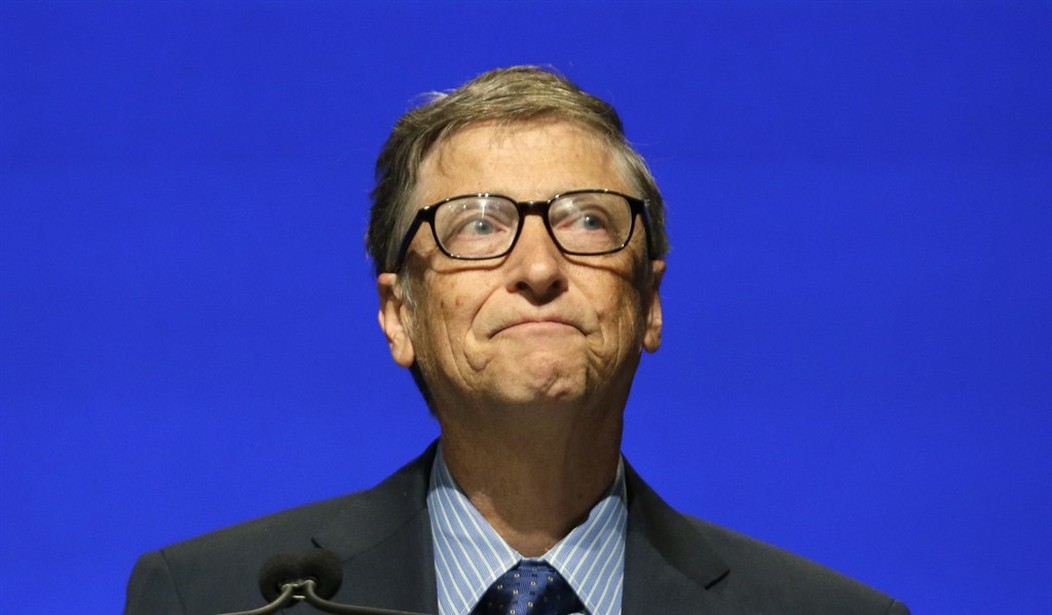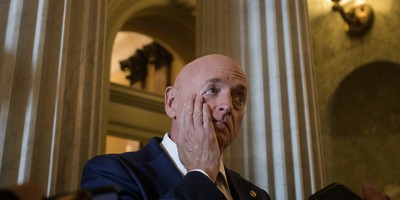Quoting from an argument advanced by moral philosopher Peter Singer; he questions why anyone would donate money to build a new wing for a museum rather than spend it on preventing illnesses that can lead to blindness.
"The moral equivalent is, we're going to take 1 per cent of the people who visit this [museum] and blind them," he says. "Are they willing, because it has the new wing, to take that risk? Hmm, maybe this blinding thing is slightly barbaric."
Article: An exclusive interview with Bill Gates
Financial Times
November 1, 2013
Bill Gates more or less took the One Percenters' battle of guilt and responsibility to a different place, arguing that it's not enough to donate money, but that it must be donated to the right cause. By not giving to the right cause, those with means may actually be guilty for the outcomes of the lives of people they've never met, and whose circumstances the would-be donor never played a role in creating. The philosophy promoted by Pete Singer argues the following notion:
If we can prevent something bad without sacrificing anything of comparable significance, we ought to do it; absolute poverty is bad; there is some poverty we can prevent without sacrificing anything of comparable moral significance; therefore we ought to prevent some absolute poverty.
Of course, this is the kind of guilt-driven idealism, which is pushing the political needle and influencing elections around the world. Unfortunately, the outcome is often that those without means are demanding that those with means to "share" through higher taxes. I think this creates a different moral dilemma; large governments that continue to waste money, that slow down the broader economic opportunities for the private sector, and never find the true sources, which arrest economic opportunities and cause poverty.
This brings us to a real life Petri dish of political morality, and the outcomes of decisions made years ago. Detroit, which was once a rich city, was known as the Paris of America; government has gotten larger, as citizens have voted out fiscal conservatives. The damage didn't occur overnight (for those looking for America to slide into the Atlantic tomorrow; it's not going to happen). But, the seeds of destruction via lavish promises, reckless government spending, and lesser demands being made on those that needed to pull themselves up have given us the bankrupt city that looks hopeless these days.
Recommended
Another seed was planted even farther back; this one by the 1% of its day ... the industrialist, and the so-called robber barons.
Birth of a Nation ... Birth of an Art Museum
 In 1844, James Scripps came to America with four siblings and his widower father. He grew up on a farm, and one of his first jobs was at the Chicago Tribune. He later became manager of the Detroit Tribune. His next move was to become part owner and manager of Detroit Daily Advertising. The business burned down in 1873, and Scripps took his $20,000 in insurance money and started his own newspaper.
In 1844, James Scripps came to America with four siblings and his widower father. He grew up on a farm, and one of his first jobs was at the Chicago Tribune. He later became manager of the Detroit Tribune. His next move was to become part owner and manager of Detroit Daily Advertising. The business burned down in 1873, and Scripps took his $20,000 in insurance money and started his own newspaper.
The Evening News focused on the growing throngs of working folks, sold inexpensive ads, and Scripps instructed his reporters to write "like people talk." The critics hated the paper; the public loved it. Later chronicles of Scripps traveled around the world, and reported about art museums, which captured the imagination of the town. This became the inspiration for a world-class museum in Detroit.
A museum was born in 1883, when the Detroit Institute of Art opened. In 1889, Scripps donated a then $75,000 ($18.9 million in today's dollars) in art. He wasn't the only donor. Several self-made men responsible for the rapid rise of America, massive job creation, and, life-changing innovations, also made donations, which made the museum a modern marvel, even to this day.
Charles Freer, who left high school to work as a business clerk, later became founder of world's largest maker of rail cars.
Freer was also instrumental in the expansion of the Smithsonian.
Additional donors epitomized how trailblazers in this country could change America and the world; Firestone (tires), Ford (automobiles), Tannahill (department stores), Ferry (seeds), Hiram Walker (sprits), Alger (lumber), Mabley (department stores) , and Buhl (industrialist).
Now a bankruptcy court is having the art appraised to help pay creditors of the city, that now has $18.0 billion in long- term debt, but only $128 million in cash. The city died a longtime ago and has been on life support. Voters still choose more promises, even as their city crumbles, and those with the ability to do so, have already fled. A world-class museum didn't stop erosion in educational values, as approximately 47% of the adult population is functionally illiterate. Yet, maybe those robber barons have disproved Bill Gates and Peter Singer, inadvertently.
Their gifts are now worth at least $1,000,000,000. It may be enough for a grand bargain that allows for a faster exit out of bankruptcy and into a new beginning. I can only hope that the kind of entrepreneurial spirit, which used to pump through veins of the city and nation, is being embraced at this fresh start.
Any of Our Business?
So, what do you think? Is giving to art museums a waste of money-even a crime against humanity? Is it even any of our business? Is this kind of guilt trip ruining our country; leading to the rejection of the very system that enabled America to become the greatest nation ever known to mankind?

























Join the conversation as a VIP Member